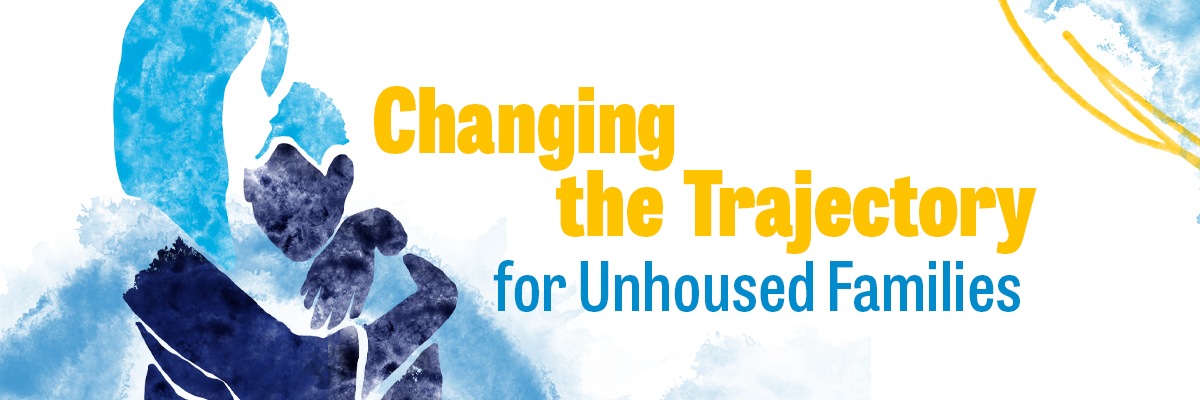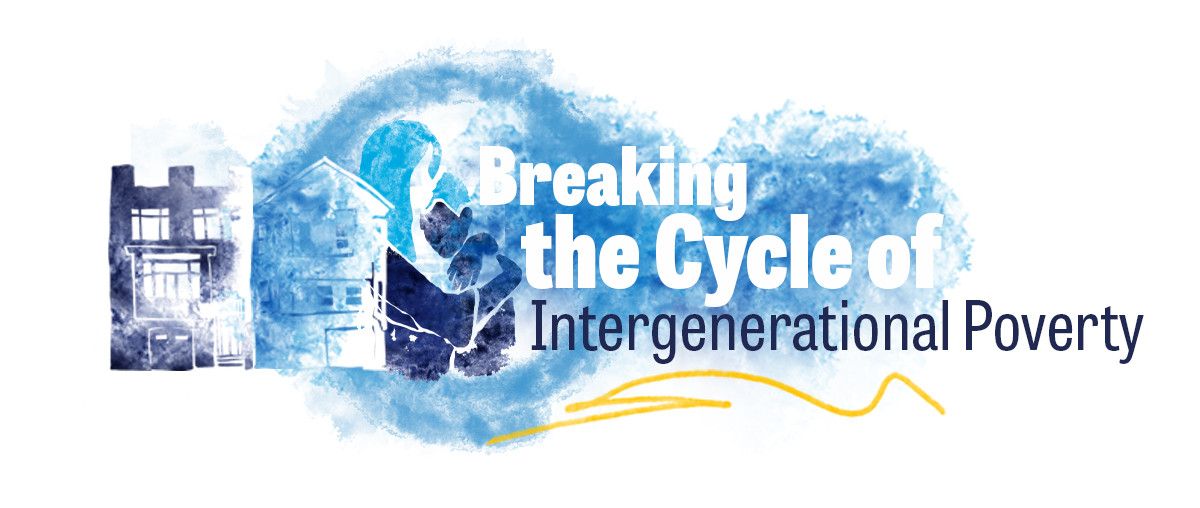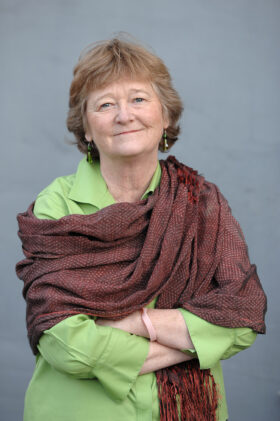Changing the Trajectory for Unhoused Families

Through our Community Focus Series, All In is centering the voices of people with lived homeless experience and sharing the knowledge of those working to provide the solutions—homes and services—we need to make homelessness history in San Francisco.
Ask any parent, and they’ll tell you that the morning routine of getting kids dressed, fed, and out the door for school is a feat. Now, think about doing that in a shelter for people experiencing homelessness where your child, toothbrush in hand, waits with strangers for their turn to use the shared bathroom.
When we think of who is experiencing homelessness, we often picture individuals. But there are entire families, including young children, waiting for a home in our city. Every person experiences homelessness differently – and that couldn’t be more true for families, who require services that meet the needs of both adults and children.
In San Francisco, we are lucky that Homeless Prenatal Program (HPP) has been doing this work in our community for more than 30 years. I recently sat down with HPP’s Founder and Director, Martha Ryan. Martha’s career spans continents, including partnering with displaced women, children, and families in refugee camps in Africa and a decade as an ICU nurse at San Francisco General Hospital. And from this experience, HPP was born to meet a crucial need she saw right here in San Francisco.
“There were these pregnant moms, these moms with young kids coming in, they’d be out all day; didn’t matter what the weather was. What happens to those people, and to their families?” Martha said when we chatted on Zoom.

HPP understands that the instability of poverty has intergenerational consequences and increases the likelihood that children will face the same struggles as their parents. “I’ve never met a woman who wanted to hurt her baby, but it happens, when you don’t have support,” Martha said. “This is about intergenerational poverty. Families don’t receive the support they need, and the intergenerational cycle gets bigger and bigger.”
This cycle means families don’t have the resources to invest in their child’s emotional, cognitive, and behavioral growth. And these setbacks make it harder for the child to achieve educational milestones, which will ultimately affect prospects for professional advancement.
This reality underscores the immense challenges unhoused families are facing, and the cyclical nature of those challenges. Losing your home makes every setback harder and adds new fears that put immense pressure on parents. “And when the parents are stressed,” Martha adds, “Who feels it most? The kids.”
Studies show how this reverberates throughout every aspect of a child’s life and makes them as much as 72% more likely to raise their own children in poverty. And beyond the economic impact, sustained poverty burdens the family with chronic stress that even leads to poor health outcomes, like heart disease and diabetes, in adulthood.
But the good news is that we know what needs to be done to break that cycle, thanks to important community partners like Martha and her team at Homeless Prenatal Program.
“Being a nurse practitioner, I loved prenatal care. I saw it as a wonderful time in a woman’s life to make changes,” Martha said. “If she was having behavioral health challenges, she could make changes towards delivering a healthy baby.”
Many of her staff share lived experience with the families they partner with. They’re living proof of what is possible when families are given the homes and support they need to thrive.
“Working with families and pregnant moms, if you go in and invest in them, give them the tools and the skills they need, then they do the work to break the cycle, and it really changes the trajectory for the whole family.”
The Homeless Prenatal Program promotes healthful living in families with four major goals designed to help family members get the services and support they need:
- Healthy Babies: Perinatal services to promote healthy pregnancies, births and bonding.
- Safe, Stable Housing: Housing support including education, resources and limited rental assistance.
- Nurturing Relationships: Services designed to strengthen families and promote protective factors.
- Economic Sustainability: Job training, financial education and other resources to encourage family stability and self-sufficiency.
We know we need to work upstream and prevent families from crossing the threshold into homelessness in the first place. And for those families who are living unhoused now, we need to give them the homes and services they need to transform the trajectory of their lives, now—and for the future.
“The people who are on the street now, they used to be kids. Someone stopped believing in them. Something happened there, and now they are chronically homeless,” Martha said. “We can prevent that from happening if we’re smart. And it would be a lot cheaper.”
 Martha RYAN
Martha RYAN
Martha Ryan’s journey to creating the Homeless Prenatal Program (HPP) began in Africa. After a 10-year stint as an ICU nurse at San Francisco General Hospital, Ryan returned to Africa, where she had been a teacher for the Peace Corps years before. In Somalia and the Sudan, Ryan worked in refugee camps where she created a Community Health Outreach Program, a program she would later replicate at HPP. In 1989, Ryan founded HPP to provide free prenatal care to at-risk pregnant women. In that first year, HPP provided prenatal care to 72 women. 29 years later, HPP has a staff of 90 (half former clients) that serves 3,500 families annually.
Ryan holds an M.P.H., Maternal and Child Health, from the University of California, Berkeley and a B.A. in Modern Languages from the University of San Francisco. She has received numerous honors for her work including an honorary doctorate from University of San Francisco, a CNN Hero Award, a James Irvine Foundation Leadership Award, the Robert Wood Johnson Foundation’s Community Health Leadership Award and the San Francisco Foundation’s Community Leadership Award.
THE Homeless prenatal program
Mission: In partnership with our families, break the cycle of childhood poverty.
The Homeless Prenatal Program is a nationally-recognized family resource center in San Francisco that empowers homeless and low-income families, particularly mothers motivated by pregnancy and parenthood, to find within themselves the strength and confidence they need to transform their lives. We serve over 3,500 low-income and homeless families annually, providing a variety of programs and services to help families become healthy, stable and self-sufficient.

